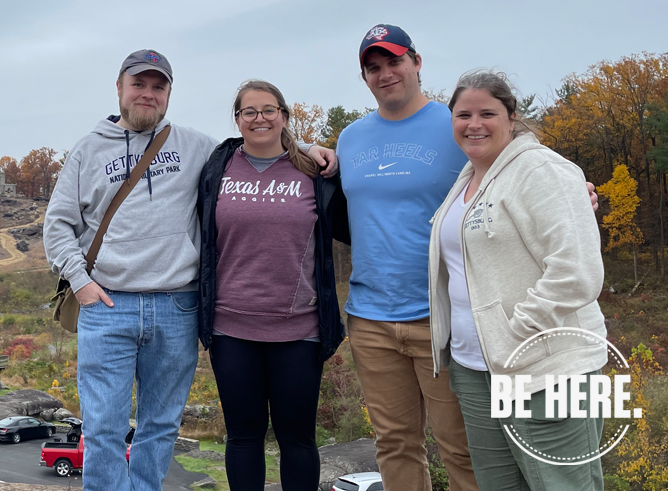
Ever wonder how the United States Army produces its official history? The answer is much closer than you think.
Three Texas A&M University students and three graduates of the College of Arts and Sciences’ Department of History have joined the U.S. Army Center of Military History (CMH) to contribute to the research, preservation and recording of official U.S. military history in various capacities and on a range of events.
“This is outstanding that we have so many of our students shaping the writing and production of the official government histories of the Army and of America’s conflicts,” said Dr. Lorien Foote, the Patricia & Bookman Peters Professor in History at Texas A&M. “These students are the historians who are writing the history that future generations will use to understand America’s conflicts. They are going to shape what incidents and facts are put into the narrative that people will use in the future.”
Formed in 1943 and housed within the U.S. Army Training and Doctrine Command, the CMH’s mission is to “accurately collect, preserve, interpret and express the Army's history and material culture to more broadly educate and develop our force, the military profession and the nation.” The CMH carries out this mission through activities such as publishing official manuscripts on U.S. military conflicts, maintaining lineage and honors certificates of units, managing more than 120 museums and their holdings, providing historical context to Army officials for decision-making purposes, and organizing staff rides for military leaders to retrace the courses of battles and training officers in the study of history.
The fact that the CMH has selected six Texas A&M history students to assist with these endeavors is an honor unto itself, according to Foote.
“Because the CMH has been so thrilled with what Aggie historians can do, they’ve now hired six of them, which is an unusual cluster of that many historians from one institution,” Foote added. “We have a nationally renowned military history graduate program. We have former students who have gone on to teach at West Point, the U.S. Air Force Academy and at different staff and command colleges. We’re one of the largest senior U.S. military colleges in the United States. We have that strong tradition of the Corps of Cadets and a strong veteran’s affairs program. So, the CMH knows our students come from an environment where the military is understood.”
The three history Ph.D. candidates — Ashley Vance ’22, John Matthew Lewis ’23 and Shane Makowicki ’16 — are joined by three Texas A&M history Ph.D. graduates: Grant Harward ’18, Laurence Nelson ’23 and Kendall Cosley ’23. All of them specialize in military history regarding different conflicts, ranging from the American Civil War to the post-World War II era. Each student recently detailed their research interests, involvement with the CMH and why they choose to Be Here at Texas A&M for their academic pursuits in the following series of interviews:
About Ashley Vance
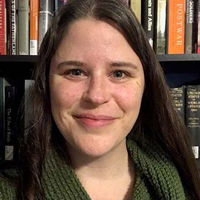
Ashley Vance focuses on 20th century U.S. Army history. Vance’s dissertation, "On the Edge of Battle: Building a Cold War Army in Germany, 1945-1960," examines the post-World War II military occupation of Germany and the US Army’s transformation from a war-fighting force to a peacetime deterrent for the Cold War.
What prompted you to study military history?
Having never served in the military (nor having any family members who did), I have always had an interest in understanding how the Army, as an institution, operates. And as a historian, I am interested in the untold stories of the past. Examining the Army's presence in Germany after World War II engages both of those interests. I investigate how the Army in Germany transformed itself to meet the needs of the Cold War, and I study the soldiers — most of whom are overlooked in the broader historical narrative because they didn't fight in a war — and how they supported that transformation.
Why did you choose Texas A&M for your academic studies?
I had never heard of Texas A&M before I made the decision to apply. My M.A. advisor told me I should figure out who I wanted to work for and apply there. Which is exactly what I did. I came to Texas A&M specifically to study under my advisor, Dr. Adam Seipp. His work intersects military history and modern European/German history, which aligns very closely with my research. I admired his scholarship before I arrived in Bryan-College Station, and I continue to look up to him as a scholar and mentor today.
What do you research at the U.S. Army CMH? How?
At CMH, I am a graduate research assistant for Dr. Thomas Boghardt, who is a senior historian in the Histories Directorate department. Boghardt is working on a manuscript about U.S. Army intelligence in Germany in the 1950s, which closely overlaps my own work. To assist in this project, my duties really vary, depending upon the week. Some of the things I do are to conduct primary source research at the National Archives in College Park, Md. (NARA II); identify and locate sources that may be helpful to the project; build biographies for historical individuals; and transcribe various videos and handwritten documents.
What does it mean to you to apply your skills with the U.S. Army CMH?
I am incredibly grateful to have the opportunity at CMH, particularly because my primary career goal is to work as a historian for the federal government. This opportunity provides an invaluable insight into the industry and offers many opportunities to build my professional network. I am also very thankful to be supporting a manuscript that so closely aligns with my own research, as it offers me a forum to offer my expertise on the project while at the same time having that project inform my own research and writing.
About Kendall Cosley
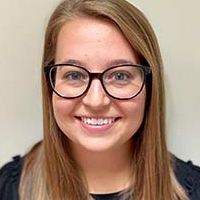
Kendall Cosley focuses on American military history with a dissertation on how war reporters and American soldiers during World War II’s European Theater created the iconic image of G.I. Joe.
What prompted you to study military history?
I loved learning more about wars throughout high school, and as an undergrad, I took every course Marquette University offered on military history. During my last semester of undergrad, I did an internship at my university's archive. I digitized the collection of an Associated Press correspondent who lived in Berlin from 1937-1941. His letters, draft dispatches and personal photographs all wove together an interesting and complex story of how reporters saw the rumblings of war and reported it to the American public. I was left with so many questions about how the press had shaped what the Americans back at home understood and knew about the war, so I decided to pursue this further in my M.A. program at Marquette University and later in Texas A&M’s Ph.D. program.
Why did you choose Texas A&M for your history studies?
The biggest draw for me about Texas A&M is that it has a very active military history program that features several prominent military historians. In a climate where tenure-track jobs are hard to come by, I appreciated that Texas A&M was placing their graduate students in successful careers in academia and government. Their record of graduates securing jobs and being successful in their post-graduate careers offered me hope for having the resources necessary to finish my degree and get a good job after graduation.
What do you research at the U.S. Army CMH? How?
I started out at CMH as a graduate research assistant in the summer of 2020. I helped work on a study of the Army's response to COVID-19. After that two-year position ended, I applied for one of the Army Fellowship positions that opened in Spring 2022. I was selected for one of the positions and was hired as a full-time government employee for CMH. Within CMH, I work for the Headquarters, Department of the Army (HQDA) Studies and Support Division. My division writes the annual Department of the Army, Historical Summary for each fiscal year. My team also conducts end-of-tour interviews with HQDA personnel who retire or leave their positions. We also write short historical summaries of more recent events, such as the Army's response to COVID-19.
What does it mean to you to apply your skills with the U.S. Army CMH?
Having a firm understanding of Army history has helped me understand the modern Army that I work for as well as the Army that I am helping to document. Throughout my time at Texas A&M, I learned much of the historical context needed for my current position, but I also learned how to research, read and write critically. I developed the skills to weave together a narrative and incorporate rich primary source material. The courses I took with Dr. Brian Linn, Dr. Lorien Foote, Dr. Adam Seipp, Dr. Roger Reese and Dr. Terry Anderson, among others, helped me hone my skills as a writer and a researcher.
About Grant Harward
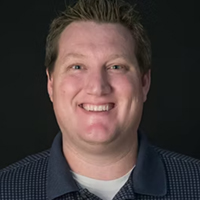
Grant Harward received a Ph.D. in history from Texas A&M in 2018. His major fields were modern European history and modern European war and society. Harward transformed his dissertation into a book manuscript, which Cornell University Press published as Romania's Holy War: Soldiers, Motivation, and the Holocaust in 2021.
What prompted you to study military history?
I have been fascinated by military history, especially that of the Second World War, for as long as I can remember. I think part of this interest came from my grandfather, who served in the Navy aboard an aircraft carrier, the USS Lexington, during the late 1930s. Fortunately, he didn't have to fight overseas during the Second World War, but he told me stories about his life as a sailor in the peacetime navy and about the later sinking of his beloved "Lady Lex" in the Battle of the Coral Sea. When I went to college at Brigham Young University, I declared myself a history major and never looked back. After serving a two-year mission in Romania for the Church of Jesus Christ of Latter-day Saints, I used my newly developed Romanian language skills to begin researching Romania in the Second World War.
Why did you choose Texas A&M for your history studies?
I applied to Texas A&M for my Ph.D. because of its history department's reputation of having one of the top five military history programs in the country. Furthermore, I discovered that among the faculty was Roger Reese, who is not only an expert on the Red Army on the eastern front in the Second World War but also approaches the subject through the lens of social history. The history department provided travel and research funds, faculty were top-notch and the History Graduate Student Organization (HGSO) was robust and active.
What do you research at the U.S. Army CMH? How?
I am currently a historian in the Headquarters, Department of the Army (HQDA), Studies and Support Division. I work with approximately a half dozen other historians to provide historical support to the Army offices in the Pentagon. We act as a reference source and a fact checker responding to requests for information, often with help from archivists and librarians. I am currently working on a brief history of the Office of the Deputy Chief of Staff, G-1, the Army Staff office for personnel, which examines the first century of its existence from 1921 to 2021 covering two world wars, introduction of a peacetime draft, end of segregation of African Americans in the military, transition back to an all-volunteer force, eventual integration of women into all branches of the Army, and many other crucial people-related developments.
What does it mean to you to apply your skills with the U.S. Army CMH?
I have wanted to be a historian for pretty much my entire life, so I am grateful every day that I realized my dream. I'm so glad I took the path that I did to arrive at the Texas A&M University history department, where I had the chance to start working for the U.S. Army CMH. I get to use the skills that I developed as a graduate student while also learning new ones as an Army historian.
About John Matthew Lewis
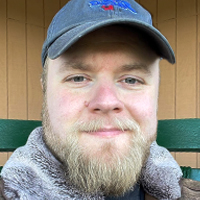
John Matthew Lewis studies African American military history and video game history. His dissertation centers Black soldiers in the Pioneer Infantry during World War I.
What prompted you to study military history?
Military history surrounded me growing up. My grandfather was a soldier at the end of WWII and in Korea. He kept silent about his own service but managed to express his interest in where he had been and what he had done by reading about the people and events surrounding him during those wars. I grew up with his books about WWII, Korea and the Napoleonic wars that were just lying around his house. He encouraged me to read and learn. I have had several careers since he passed away, and I always managed to turn my gaze toward history on my off time. I decided to try and make a career out of it one day. It is not uncommon for a history grad to enter graduate school knowing that they are going to study history, though they may not know for sure what history that may be yet. I am lucky. I started grad school near the end of the centenary of the Great War. There was so much discussion around the topic that I got drawn in. As it happens, the WWI centenary is the reason I focused on African American military history and video games history. Several WWI video games were released at that time, putting soldiers of color front and center in their narratives and gameplay.
Why did you choose Texas A&M for your history studies?
It was recommended to me by my master’s advisor. It is, in fact, one of the best military history programs in the country and is in competition with several other programs that are also excellent. The personal touch convinced me to sign on. Texas A&M was the only school to call me on the phone to talk to me and get to know me after I applied. Everyone else sent me a letter or an email. That meant a lot to me.
What do you research at the U.S. Army CMH? How?
For the last year, I worked in the Field Programs Directorate (FPD) as a graduate research assistant. As of August of this year, I am one of three Colonel Charles Young Fellows working at the CMH. I work for the Force Structure and Unit History branch of FPD, which is responsible for maintaining the lineage and honors for all the Army's units. I assist in the lineage and honors process by researching and investigating unit awards and campaign participation credit cases.
What does it mean to you to apply your skills with the U.S. Army CMH?
In a nutshell, the center's duty and privilege is to educate the Army and the public about the Army's service to the Constitution and the people. I am very proud to be a part of that. Eventually, I want to work in professional military education and even at a service academy. CMH is a step in that direction. I want to pay forward what I have learned at the CMH. An informed soldier is a better soldier. An informed citizen is a better citizen. Plus, military history is just fun. Working for the Army doing the thing that I love has been a thrill!
About Laurence Nelson
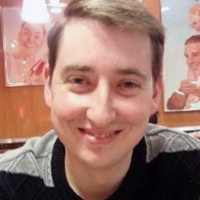
Laurence Nelson is completing his Ph.D. in history, focusing on early 20th century intervention and the U.S. military. Nelson, as of this writing, is at basic training after enlisting in the Virginia National Guard. His wife, Emma, helped complete this interview by transcribing his answers through their short phone calls on Sundays.
“Laurence worked hard throughout his education to dedicate time to his degree, growing family, various jobs and roles in our church,” Emma said. “This past year, the call to serve was stronger than ever, so we decided that he could answer that call. It shows his dedication to our country and to his desire to truly understand the stories of those he researches and writes about.”
What prompted you to study military history?
A lifelong passion and interest in the subject.
Why did you choose Texas A&M for your history studies?
I chose Texas A&M because I wanted to study Latin American history and military history, and it was the perfect institution to study both.
What do you do/research at the U.S. Army Center of Military History? How?
I am working on a book on the U.S. training of Afghan forces. I use U.S. military records, personal interviews and oral histories.
What does it mean to you to apply your skills with the U.S. Army Center of Military History?
It fills me with a deep sense of gratitude to foster improved learning in the U.S. Army and facilitate further analysis.
About Shane Makowicki
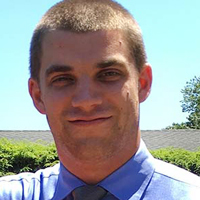
Shane Makowicki received his M.A. in history in the spring of 2016 at Texas A&M before working on his Ph.D. His field of focus is American military history, with particular emphasis on the American Civil War. He has taught several courses, including “The History of American Sea Power,” while at Texas A&M.
What prompted you to study military history?
My grandfather served in the military in the 1950s and often shared his experiences with me, which helped spark my curiosity. From a broader perspective, I have long felt that humans’ primary instinct is for survival. Therefore, I have been fascinated by the study of why men and women would seemingly contravene that instinct by facing death in combat. Finally, I believe that a true understanding of American history and of what it means to be a responsible and socially conscious citizen requires an understanding of conflicts central to our national story, such as the American Revolution and Civil War.
Why did you choose Texas A&M for your history studies?
Texas A&M has a remarkably well-respected graduate military history program — one of the few remaining in the country. I was intrigued by the opportunity to study under the prolific faculty in the history department, such as Dr. Brian Linn, Dr. Adam Seipp and Dr. Joseph Dawson. The primary reason that I chose Texas A&M, however, is my doctoral advisor, Dr. Lorien Foote. During my application process, Dr. Foote mentored me and showed selfless interest in my undergraduate work. While I was impressed with her scholarship, I was even more impressed with her character and her willingness to commit the substantial amount of time and effort necessary to shepherd graduate students to a Ph.D. She made Texas A&M the perfect fit for me.
What do you research at the U.S. Army CMH? How?
My official job title is a historian in the Field Programs and Historical Services Directorate. In this capacity, I help research and write the official history of the U.S. Army. One of our major projects is the “Tan Books.” These are the Army’s official histories of Operation Iraqi Freedom (OIF, the Iraq War) and Operation Enduring Freedom (OEF, the war in Afghanistan). Additionally, I am heavily involved in CMH’s “Staff Ride” program. When leading a staff ride, I take a group to a historical site or battlefield and lead them through a program that is tailored to draw connections between historical events and the missions/goals of their organization. For instance, I led a staff ride at Gettysburg for the 101st Airborne Divisional Artillery that concentrated on the coordination between infantry and artillery during the Civil War. I also helped develop a staff ride that focuses on the Lincoln Assassination and the Army’s response and subsequent manhunt.
What does it mean to you to apply your skills with the U.S. Army CMH?
I am extremely proud to say that I am a historian for the U.S. Army. The History Department faculty at Texas A&M, my graduate committee and especially my doctoral advisor [Foote] have put a significant amount of effort and resources into training me to be a better historian. To have the opportunity to apply these skills to make the Army more historically conscious and to make the public more conscious of how the Army’s history is inextricable from our nation’s history is a true privilege.
The views and information presented above are those of the interviewees and do not represent the official position of the U.S. Army, U.S. Department of Defense or U.S. Government.
